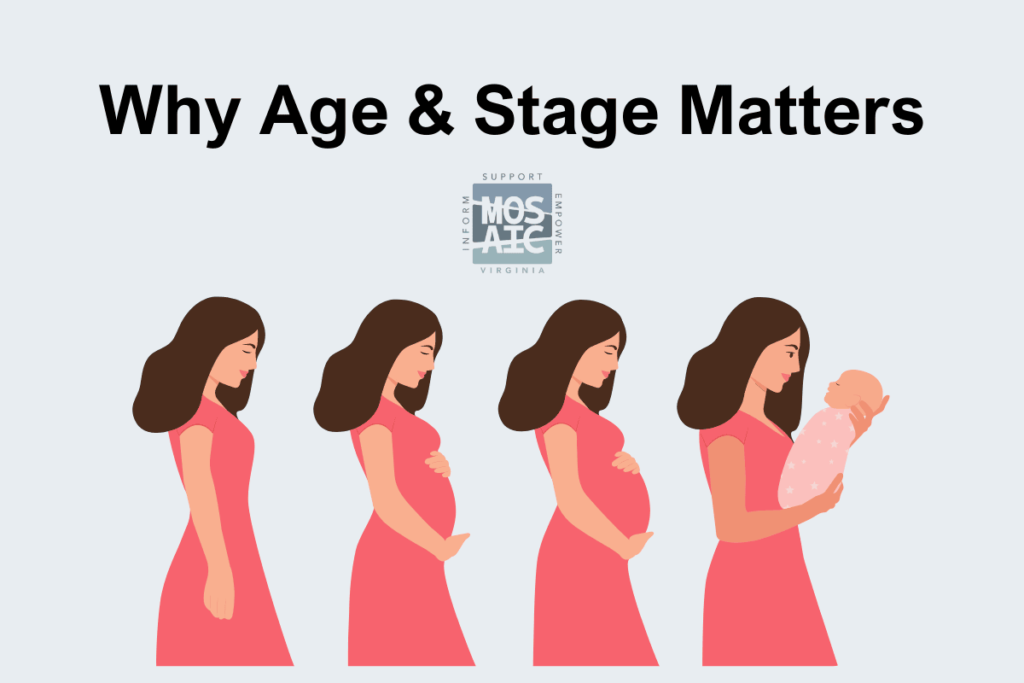Abortion Near Me: Exploring Your Options for an Unplanned Pregnancy
Accidental pregnancy? Having that ‘should-I-talk-about-it’ feeling? We get it. Talking about an unplanned pregnancy can be hard. But it shouldn’t have to be! As healthcare professionals, we approach this topic with care. And, we understand all the implications involved.
In this article, we discuss important abortion information. You deserve safe, unbiased information about your pregnancy options.
What Is An Abortion?
Abortion is the termination of a pregnancy. A miscarriage is an involuntary termination of pregnancy. In the literal sense, a miscarriage is a form of abortion. In this article, we are referring to the common definition of abortion: Abortion as the volunteer termination of pregnancy.
This definition of abortion means deliberate end of pregnancy. It happens before the infant can live independently. There are two main types of abortion: medical and surgical. Medical abortion involves taking medications to end pregnancy. The medications are referred to as ‘the abortion pill.’ Surgical abortion involves removing the fetus from the womb. It is important to note that there are laws in place for when abortions can happen. These laws vary depending on country and state. We will further discuss abortions and laws, but first, let’s talk about why we prioritize discussing abortion in the first place.
Importance of Discussing Abortion
As licensed healthcare professionals, our mission is to support and care for women. It is vital we provide accurate and unbiased information on reproductive health rights.
Honest chats about the risks, benefits, and options for an unwanted pregnancy are crucial. We think about women’s mental, physical, and spiritual well-being. This allows women to make informed decisions that align with her needs fully. Talking about abortion can provide a safe space for women to ask questions. Women should feel confident in their decision-making process.
As healthcare providers, we approach this topic with sensitivity. We respect the mother and the baby’s autonomy and dignity. Now, let’s dive into the different types of abortion.

Table of Contents
Emergency Contraception: Understanding Your Options
Unintended pregnancy can be a stressful and overwhelming experience. Thankfully, resources are available to solve difficult situations. And the support to do so. Consulting with a healthcare professional allows you to discuss your options and your situation. Together you can determine the best option for your circumstance. In this article, we provide an overview of the most common methods of emergency contraception. Please note that this overview of abortion options. It cannot replace options counseling for your unique needs.

Surgical Abortion
Surgical abortion is a surgery to remove the fetus from the uterus. There are several surgical methods. These methods include vacuum aspiration, dilation and curettage (D&C), and dilation and evacuation (D&E). The method used depends on the stage of pregnancy and the woman. According to Planned Parenthood, vacuum aspiration (also called suction abortion) is the most common type of surgical abortion. It involves placing a speculum into your vagina. The doctor may need to open the cervix using thin rods called dilators. A tube is then inserted through the cervix into the uterus. Either a handheld suction device or a suction machine empties your uterus. If you are awake for your procedure, you will feel cramping, like period pains (1). This procedure and the damage caused are irreversible. Medical reasons to not have this medical procedure include IUD’s, ectopic pregnancy, use of aspirin, and bleeding disorders (2).
Like most surgeries, there are risks involved, such as bleeding, infection, and damage to the uterus or other organs. Unprofessional or at-home abortions not performed in a professional facility are extremely high-risk. They can result in serious complications and even death (3).
Medical Abortion also known as Abortion Pill
Medical abortion involves taking medication to end a pregnancy. This is why it is called a medication abortion. The medication is referred to as the abortion pill. It is really two medications — mifepristone and misoprostol. The medications abort the baby by blocking the hormone progesterone. Progesterone is necessary for a pregnancy to continue. It is also necessary for women’s menstruation. As a result of blocking progesterone, the lining of the uterus breaks down. This expels the fetus from the body through bleeding and cramping. A Medical abortion is performed up to 10 weeks (about 2 and a half months) into the pregnancy. It is not suitable for women with certain medical conditions. In addition, it is not suitable for women who are further along in their pregnancy. Because the stage of pregnancy matters, an ultrasound is a legal necessity. For health and safety, we offer free ultrasounds for women here at Mosaic.
There are pill reversal options for women who have started the medical abortion procedure. For more information on this, contact our Mosaic team or read our, “Is the Abortion Pill Reversible?” page. To date, there are no long-term studies on mifepristone and misoprostol.


Emergency Contraceptive Pills (ECPs)
Emergency contraceptive pills is commonly known as the “morning-after pill.” It is available over the counter or by prescription. Technically, ECPs are not a form of abortion. But they are important when discussing women’s options and contraceptive failure. There are two types of ECPs: progestin-only pills and pills that contain both estrogen and progestin. These pills work by preventing or delaying ovulation, which is the release of an egg from the ovary. For ECPs to work, they must be taken as soon as possible after unprotected sex. The ideal timeframe is within 72 hours (about 3 days) but can be taken up to five days after.
ECPs are generally safe and low cost, but they do come with potential side effects. Anything that messes with a woman’s natural hormonal balance has side effects. Some women may experience nausea, vomiting, headaches, or irregular bleeding after taking ECPs. Women with certain medical conditions, such as liver disease or a history of blood clots, may not be able to take ECPs. It is important to discuss any concerns with a healthcare provider before taking ECPs. It is also important to note that ECPs should not be used as a regular form of birth control. They can have negative impacts on hormonal health if taken frequently.

Early vs Late Term Abortion
Early term abortion occurs in the first trimester, up to 12 weeks (about 3 months). This is the most common timeframe for abortions. It carries a lower risk of complications. Late-term abortion refers to a pregnancy termination that occurs after 20 weeks (about 4 and a half months). It is only performed in cases where there is a risk to the mother’s health. Late-term abortions are rare and often more complex, requiring specialized care.
Medical abortion is a form of early term abortion. It is used in the first trimester of pregnancy. Medical abortion involves taking two different drugs – mifepristone and misoprostol. The drugs are taken over a period of several days. Surgical abortion, on the other hand, can be done during early or late term. It involves a medical professional removing the contents of the uterus through a surgical procedure. It’s most commonly used in the second trimester of pregnancy. Both medical and surgical abortion methods have risks. It is important to discuss all options with a qualified medical professional before deciding.
Emergency birth control (morning after pill) is not technically an abortion. It is an early form of pregnancy prevention many women consider. Women can take it up to 72 hours (about 3 days) after unprotected sex. Emergency contraception will not work once the fertilized egg has been implanted in the uterus. The morning after pill is not a safe form of long-term birth control. It should not be relied upon as a primary method of contraception.
Late-term abortions are 20 weeks or about 4 and a half months after conception. Physician specialists in specialized clinics or hospitals can perform late-term abortions for special cases. It is an intense procedure. It may take up to several days. It requires hospitalization. It also requires careful monitoring of the patient’s condition. There are potential complications, such as infections or bleeding. A late-term abortion is a challenging procedure for the mother, the family, and the healthcare team involved.
Research and education on late-term abortions are essential. It ensures that women receive up-to-date and evidence-based care. It also ensures that healthcare providers are properly equipped in a sensitive and respectful manner. What is potentially even more important is the post-abortion support offered and provided to women who have late-term abortions. f you or someone you know needs post-abortion support, please know that our team is here to love and care for all women.

By helping women understand the different types of abortion and their implications, we can better serve and support them in making informed choices about their reproductive health and overall well-being.
Understanding Abortion Laws in Virginia
In Virginia (at the time of publishing), the right to access abortion is a law. The United States Constitution protects this law. The state of Virginia has liberal laws regarding abortion access. But there are restrictions in place that you should be aware of.
Abortions are legal in Virginia up to 20 weeks old. This is about 4 and a half months after the start of a woman’s last menstrual period (LMP). After 20 weeks, abortions have stricter regulations. They are only allowed if the pregnancy is deemed a threat to the life or health of the pregnant mother. In addition, Virginia has a mandatory waiting period. 24 hours are required between the time of counseling and the abortion procedure. During this time, the woman must receive specific information about the procedure and its risks. There are additional laws for minors in Virginia seeking an abortion. Women under the age of 18 years old must have parental consent or obtain a judicial bypass.
It’s crucial to understand the laws and resources available for abortion in Virginia. Women seeking reproductive healthcare should know everything about their options. While restrictions exists, there are many options and resources available for women who need them. With accurate information and support, women can be confident in their decision. And have all the resources they need to make the best decision for their entire well-being. Learn more about Abortion Laws in Virginia.
Abortion and Women’s Health
Abortion is a complex issue that can have significant physical and emotional effects. Physical effects can include hormonal changes, bleeding, cramping, and infection. There can be serious complications that require hospitalization. There can be damage to the uterus or infection of the reproductive organs. It is important for women to receive proper medical care. Follow-up after an abortion is also crucial to ensure overall health.
Abortion can have short-term and long-term emotional effects on women. Many women experience a range of emotions and effects. This can include guilt, depression, lack of energy, nightmares, sadness, and regret after undergoing an abortion. Women may struggle with feelings of loss and grief. There is actually a name for this. It is disenfranchised grief. Women experience the spiritual conflict of having prevented a life from continuing. It is important for women to have access to emotional support services. Counseling helps to process emotions. It also helps women make informed decisions about their reproductive health in the future. For long-term health, we highly recommend seeking post-abortion support for women who have experienced abortion.
Risks and Complications of Abortion
The FDA considers abortion non-life threatening to the mother. But there are risks and complications that can arise during an abortion procedure. The most common complications of abortion include infection, excessive bleeding, and damage to the uterus. In some cases, abortion can lead to long-term complications such as infertility, chronic pain, and depression.
Infection is one of the most common complications of surgical abortion. It can occur if bacteria enter the uterus during the procedure. It can also occur if the uterus is not thoroughly cleaned afterward the procedure. Symptoms of infection can include fever, chills, and abdominal pain. If left untreated, infection can lead to more serious health problems and even death in rare cases. It is important to seek medical attention right away if you suspect that you may have an infection.
To date, there are no long-term studies on the effects of medical abortion, known as the abortion pill. While considering your options, it is important to know this.
For all forms of abortion, there is the risk of damage to the uterus. There is the risk of hormone cycle irregularities. And there are risks for mental health implications.
Access to Safe and Legal Abortion
The FDA considers abortion non-life threatening to the mother. But there are risks and complications that can arise during an abortion procedure. The most common complications of abortion include infection, excessive bleeding, and damage to the uterus. In some cases, abortion can lead to long-term complications such as infertility, chronic pain, and depression.
Infection is one of the most common complications of surgical abortion. It can occur if bacteria enter the uterus during the procedure. It can also occur if the uterus is not thoroughly cleaned afterward the procedure. Symptoms of infection can include fever, chills, and abdominal pain. If left untreated, infection can lead to more serious health problems and even death in rare cases. It is important to seek medical attention right away if you suspect that you may have an infection.
To date, there are no long-term studies on the effects of medical abortion, known as the abortion pill. While considering your options, it is important to know this.
For all forms of abortion, there is the risk of damage to the uterus. There is the risk of hormone cycle irregularities. And there are risks for mental health implications.

FREE ABORTION RESOURCES AT MOSAIC
- Consultations
- STI Testing
- Support Post-Abortion
- Pregnancy Testing
- STI Treatment
- Lifestyle Classes
- Ultrasound
- Options Counseling
- Abortion Laws Virginia


1. Ultrasound and Consultation
Before deciding on an abortion, you need an ultrasound and consultation from a healthcare professional. An ultrasound provides crucial information about your pregnancy. Such as how far along you are and whether the pregnancy is viable or not. This information can help inform your decision-making process. It ensures you receive the appropriate care.
During your consultation, your healthcare provider should talk to you about your options. You can ask questions about the different types of abortion procedures. And potential risks of each. You can talk about any concerns you have. They can provide you with resources for further information.
Ultrasound and consultation requirements vary by state and country. Some states require an ultrasound and waiting period before an abortion, while others do not. In the state of Virginia, it is a requirement. Research the laws in your area. Seek out a reputable healthcare provider who can give you accurate and up-to-date information.
Ultrasound and consultations are key steps in making an informed decision about your reproductive healthcare. You can trust that you know everything that you need to know about your pregnancy. And receive the support and resources you need to make the best decision for you and your child.
2. Post-Abortion Support
It is common for women to experience a range of emotions post abortion. These emotions can include sadness, guilt, and anxiety. When feeling these emotions, seek support and care from a trusted professional. This is a healthy way to process emotions and ensure physical, mental, and emotional recovery. A healthcare provider can offer post-abortion care and support. This can include counseling, medical follow-up, and referrals to additional resources if needed.
In addition, connecting with women who have had similar experiences is beneficial. Support groups and online communities are available for both women and men. This is helpful in finding resources and support from people with similar experiences.
Overall, it is important to prioritize your reproductive healthcare needs. Seek out reputable and safe healthcare providers. When dealing with an unintended pregnancy, you face a difficult decision. You deserve access to compassionate and non-judgmental care. And a community that supports you in your decision-making process.
Conclusion
- Abortion is a heavy decision that requires careful consideration and access to quality healthcare.
- Receiving an ultrasound provides crucial information about pregnancy. It informs your decision- making process.
- During your consultation, you can discuss the different abortion options. You learn about potential risks and benefits of each.
- It is important to research the laws in your area. Seek out a reputable healthcare provider who can provide you with accurate and up-to-date information.
- By seeking expert care, you can be confident in your decision. And receive the support and resources you need.
The decision to terminate a pregnancy is a heavy one for anyone to make. And it is not something that should be taken lightly. There are many reasons why a woman might want to have an abortion. This decision can have far-reaching effects for both the woman and her loved ones.
It is our duty to provide women with accurate and unbiased information about their options. We work to ensure that women have access to the resources they need. That they are confident in their informed decision about their bodies and their futures. By supporting women, we can promote healthy and fulfilling lives, free from unnecessary risks and pain.
Pregnancy Tests
If you are experiencing early signs of pregnancy and think that you may be pregnant, schedule a free pregnancy test at Mosaic Virginia! We believe that you owe it to yourself to be fully informed, to make the best decisions for yourself. We can help you find the clarity you need to move forward.
STI Testing
At Mosaic Virginia®, we believe that you owe it to yourself to be fully informed, and to make the best decisions for yourself. If you are concerned you may have contracted an STI, we are ready to help with free testing and treatment. Schedule an appointment for free STI testing and treatment.
Ultrasounds
Because few women know the exact day they ovulated or conceived, an ultrasound done in the first trimester of pregnancy has been shown to be the most accurate way to date a pregnancy. Get all the information you need to make a pregnancy decision with a free and confidential ultrasound at our center. Schedule a pregnancy confirmation appointment with us to get started.
